

Why sleep is important

- Mental Health
Sleep is essential for a person’s health and wellbeing, according to the National Sleep Foundation (NSF). Yet millions of people do not get enough sleep and many suffer from lack of sleep. For example, surveys conducted by the NSF (1999-2004) reveal that at least 40 million Americans suffer from over 70 different sleep disorders and 60 percent of adults report having sleep problems a few nights a week or more. Most of those with these problems go undiagnosed and untreated. In addition, more than 40 percent of adults experience daytime sleepiness severe enough to interfere with their daily activities at least a few days each month — with 20 percent reporting problem sleepiness a few days a week or more. Furthermore, 69 percent of children experience one or more sleep problems a few nights or more during a week.
According to psychologist and sleep expert David F. Dinges, Ph.D., of the Division of Sleep and Chronobiology and Department of Psychiatry at the University of Pennsylvania School of Medicine, irritability, moodiness and disinhibition are some of the first signs a person experiences from lack of sleep . If a sleep-deprived person doesn’t sleep after the initial signs, said Dinges, the person may then start to experience apathy, slowed speech and flattened emotional responses, impaired memory and an inability to be novel or multitask. As a person gets to the point of falling asleep, he or she will fall into micro sleeps (5-10 seconds) that cause lapses in attention, nod off while doing an activity like driving or reading and then finally experience hypnagogic hallucinations, the beginning of REM sleep. (Dinges, Sleep, Sleepiness and Performance , 1991)
Everyone’s individual sleep needs vary. In general, most healthy adults are built for 16 hours of wakefulness and need an average of eight hours of sleep a night. However, some individuals are able to function without sleepiness or drowsiness after as little as six hours of sleep. Others can't perform at their peak unless they've slept ten hours. And, contrary to common myth, the need for sleep doesn't decline with age but the ability to sleep for six to eight hours at one time may be reduced. (Van Dongen & Dinges, Principles & Practice of Sleep Medicine , 2000)
Psychologists and other scientists who study the causes of sleep disorders have shown that such problems can directly or indirectly be tied to abnormalities in the following systems:
Physiological systems
Brain and nervous system
Cardiovascular system
Metabolic functions
Immune system
Furthermore, unhealthy conditions, disorders and diseases can also cause sleep problems, including:
Pathological sleepiness, insomnia and accidents
Hypertension and elevated cardiovascular risks (MI, stroke)
Emotional disorders (depression, bipolar disorder)
Obesity; metabolic syndrome and diabetes
Alcohol and drug abuse (Dinges, 2004)
Groups that are at particular risk for sleep deprivation include night shift workers, physicians (average sleep = 6.5 hours a day; residents = 5 hours a day), truck drivers, parents and teenagers. (American Academy of Sleep Medicine and National Heart, Lung, and Blood Institute Working Group on Problem Sleepiness. 1997).
Stress is the number one cause of short-term sleeping difficulties , according to sleep experts. Common triggers include school- or job-related pressures, a family or marriage problem and a serious illness or death in the family. Usually the sleep problem disappears when the stressful situation passes. However, if short-term sleep problems such as insomnia aren't managed properly from the beginning, they can persist long after the original stress has passed.
Drinking alcohol or beverages containing caffeine in the afternoon or evening, exercising close to bedtime, following an irregular morning and nighttime schedule, and working or doing other mentally intense activities right before or after getting into bed can disrupt sleep.
If you are among the 20 percent of employees in the United States who are shift workers, sleep may be particularly elusive. Shift work forces you to try to sleep when activities around you — and your own "biological rhythms" — signal you to be awake. One study shows that shift workers are two to five times more likely than employees with regular, daytime hours to fall asleep on the job.
Traveling also disrupts sleep, especially jet lag and traveling across several time zones. This can upset your biological or “circadian” rhythms.
Environmental factors such as a room that's too hot or cold, too noisy or too brightly lit can be a barrier to sound sleep. And interruptions from children or other family members can also disrupt sleep. Other influences to pay attention to are the comfort and size of your bed and the habits of your sleep partner. If you have to lie beside someone who has different sleep preferences, snores, can't fall or stay asleep, or has other sleep difficulties, it often becomes your problem too!
Having a 24/7 lifestyle can also interrupt regular sleep patterns: the global economy that includes round the clock industries working to beat the competition; widespread use of nonstop automated systems to communicate and an increase in shift work makes for sleeping at regular times difficult.
A number of physical problems can interfere with your ability to fall or stay asleep. For example, arthritis and other conditions that cause pain, backache, or discomfort can make it difficult to sleep well.
Epidemiological studies suggest self-reported sleep complaints are associated with an increased relative risk of cardiovascular morbidity and mortality. For women, pregnancy and hormonal shifts including those that cause premenstrual syndrome (PMS) or menopause and its accompanying hot flashes can also intrude on sleep.
Finally, certain medications such as decongestants, steroids and some medicines for high blood pressure, asthma, or depression can cause sleeping difficulties as a side effect.
It is a good idea to talk to a physician or mental health provider about any sleeping problem that recurs or persists for longer than a few weeks.
According to the DSM, some psychiatric disorders have fatigue as a major symptom. Included are: major depressive disorder (includes postpartum blues), minor depression , dysthymia, mixed anxiety-depression, seasonal affective disorder and bipolar disorder .
According to a long-term study published in the 2004 April issue of Alcoholism: Clinical and Experimental Research , young teenagers whose preschool sleep habits were poor were more than twice as likely to use drugs, tobacco or alcohol. This finding was made by the University of Michigan Health System as part of a family health study that followed 257 boys and their parents for 10 years. The study found a significant connection between sleep problems in children and later drug use, even when other issues such as depression, aggression, attention problems and parental alcoholism were taken into account. Long-term data on girls isn't available yet. The researchers suggest that early sleep problems may be a "marker" for predicting later risk of early adolescent substance abuse — and that there may be a common biological factor underlying both traits. Although the relationship between sleep problems and the abuse of alcohol in adults is well known, this is the first study to look at the issue in children.
Nightmares are dreams with vivid and disturbing content. They are common in children during REM sleep. They usually involve an immediate awakening and good recall of the dream content.
Sleep terrors are often described as extreme nightmares. Like nightmares, they most often occur during childhood, however they typically take place during non-REM (NREM) sleep. Characteristics of a sleep terror include arousal, agitation, large pupils, sweating, and increased blood pressure. The child appears terrified, screams and is usually inconsolable for several minutes, after which he or she relaxes and returns to sleep. Sleep terrors usually take place early in the night and may be combined with sleepwalking. The child typically does not remember or has only a vague memory of the terrifying events.
In the August 2004 issue of the journal Sleep , Dr. Timothy Roehrs, the Director of research at the Sleep Disorders and Research Center at Henry Ford Hospital in Detroit published one of the first studies to measure the effect of sleepiness on decision making and risk taking. He found that sleepiness does take a toll on effective decision making.
Cited in the October 12, New York Times Science section, Dr. Roehrs and his colleagues paid sleepy and fully alert subjects to complete a series of computer tasks. At random times, they were given a choice to take their money and stop. Or they could forge ahead with the potential of either earning more money or losing it all if their work was not completed within an unknown remainder of time.
Dr. Roehrs found that the alert people were very sensitive to the amount of work they needed to do to finish the tasks and understood the risk of losing their money if they didn't. But the sleepy subjects chose to quit the tasks prematurely or they risked losing everything by trying to finish the task for more money even when it was 100 percent likely that they would be unable to finish, said Dr. Roehrs.
According to the National Commission on Sleep Disorders Research (1998) and reports from the National Highway Safety Administration (NHSA)(2002), high-profile accidents can partly be attributed to people suffering from a severe lack of sleep.
Each year the cost of sleep disorders, sleep deprivation and sleepiness, according to the NCSDR, is estimated to be $15.9 million in direct costs and $50 to $100 billion a year in indirect and related costs. And according to the NHSA, falling asleep while driving is responsible for at least 100,000 crashes, 71,000 injuries and 1,550 deaths each year in the United States. Young people in their teens and twenties, who are particularly susceptible to the effects of chronic sleep loss, are involved in more than half of the fall-asleep crashes on the nation's highways each year. Sleep loss also interferes with the learning of young people in our nation's schools, with 60 percent of grade school and high school children reporting that they are tired during the daytime and 15 percent of them admitting to falling asleep in class.
According to the Department of Transportation (DOT), one to four percent of all highway crashes are due to sleepiness, especially in rural areas and four percent of these crashes are fatal.
Risk factors for drowsy driving crashes:
Late night/early morning driving
Patients with untreated excessive sleepiness
People who obtain six or fewer hours of sleep per day
Young adult males
Commercial truck drivers
Night shift workers
Medical residents after their shift
According to sleep researchers, a night's sleep is divided into five continually shifting stages, defined by types of brain waves that reflect either lighter or deeper sleep. Toward morning, there is an increase in rapid eye movement, or REM sleep, when the muscles are relaxed and dreaming occurs, and recent memories may be consolidated in the brain. The experts say that hitting a snooze alarm over and over again to wake up is not the best way to feel rested. “The restorative value of rest is diminished, especially when the increments are short,” said psychologist Edward Stepanski, PhD who has studied sleep fragmentation at the Rush University Medical Center in Chicago. This on and off again effect of dozing and waking causes shifts in the brain-wave patterns. Sleep-deprived snooze-button addicts are likely to shorten their quota of REM sleep, impairing their mental functioning during the day. ( New York Times , October 12, 2004)
Certain therapies, like cognitive behavioral therapy teach people how to recognize and change patterns of thought and behavior to solve their problems. Recently this type of therapy has been shown to be very effective in getting people to fall asleep and conquer insomnia.
According to a study published in the October 2004 issue of The Archives of Internal Medicine , cognitive behavior therapy is more effective and lasts longer than a widely used sleeping pill, Ambien, in reducing insomnia. The study involved 63 healthy people with insomnia who were randomly assigned to receive Ambien, the cognitive behavior therapy, both or a placebo. The patients in the therapy group received five 30-minute sessions over six weeks. They were given daily exercises to “recognize, challenge and change stress-inducing” thoughts and were taught techniques, like delaying bedtime or getting up to read if they were unable to fall asleep after 20 minutes. The patients taking Ambien were on a full dose for a month and then were weaned off the drug. At three weeks, 44 percent of the patients receiving the therapy and those receiving the combination therapy and pills fell asleep faster compared to 29 percent of the patients taking only the sleeping pills. Two weeks after all the treatment was over, the patients receiving the therapy fell asleep in half the time it took before the study and only 17 percent of the patients taking the sleeping pills fell asleep in half the time. (New York Times, October 5, 2004)
According to leading sleep researchers, there are techniques to combat common sleep problems:
Keep a regular sleep/wake schedule
Don’t drink or eat caffeine four to six hours before bed and minimize daytime use
Don’t smoke, especially near bedtime or if you awake in the night
Avoid alcohol and heavy meals before sleep
Get regular exercise
Minimize noise, light and excessive hot and cold temperatures where you sleep
Develop a regular bed time and go to bed at the same time each night
Try and wake up without an alarm clock
Attempt to go to bed earlier every night for certain period; this will ensure that you’re getting enough sleep
In clinical settings, cognitive-behavior therapy (CBT) has a 70-80 percent success rate for helping those who suffer from chronic insomnia. Almost one third of people with insomnia achieve normal sleep and most reduce their symptoms by 50 percent and sleep an extra 45-60 minutes a night. When insomnia exists along with other psychological disorders like depression, say the experts, the initial treatment should address the underlying condition.
But sometimes even after resolving the underlying condition, the insomnia still exists, says psychologist Jack Edinger, PhD, of the VA Medical Center in Durham, North Carolina and Professor of Psychiatry and Behavioral Sciences at Duke University and cautions that treating the depression usually doesn’t resolve the sleep difficulties. From his clinical experience, he has found that most patients with insomnia should be examined for specific behaviors and thoughts that may perpetuate the sleep problems. When people develop insomnia, they try to compensate by engaging in activities to help them get more sleep. They sleep later in the mornings or spend excessive times in bed. These efforts usually backfire, said Edinger.
From his clinical work and research on sleep, psychologist Charles M. Morin, PhD, a Professor in the Psychology Department and Director of the Sleep Disorders Center at University Laval in Quebec, Canada says that ten percent of adults suffer from chronic insomnia. In a study released in the recent issue of Sleep Medicine Alert published by the NSF, Morin outlines how CBT helps people overcome insomnia. Clinicians use sleep diaries to get an accurate picture of someone’s sleep patterns. Bedtime, waking time, time to fall asleep, number and durations of awakening, actual sleep time and quality of sleep are documented by the person suffering from insomnia.
A person can develop poor sleep habits (i.e. watching TV in bed or eating too much before bedtime), irregular sleep patterns (sleeping too late, taking long naps during the day) to compensate for lost sleep at night. Some patients also develop a fear of not sleeping and a pattern of worrying about the consequences of not sleeping, said Morin. “Treatments that address the poor sleep habits and the faulty beliefs and attitudes about sleep work but sometimes,” said Morin, “medication may play a role in breaking the cycle of insomnia. But behavioral therapies are essential for patients to alter the conditions that perpetuate it.”
CBT attempts to change a patient’s dysfunctional beliefs and attitudes about sleep. “It restructure thoughts — like, ‘I’ve got to sleep eight hours tonight’ or ‘I’ve got to take medication to sleep’ or ‘I just can’t function or I’ll get sick if I don’t sleep.’ These thoughts focus too much on sleep, which can become something like performance anxiety — sleep will come around to you when you’re not chasing it,” said Edinger.
What works in many cases, said Morin and Edinger, is to standardize or restrict a person’s sleep to give a person more control over his or her sleep. A person can keep a sleep diary for a couple of weeks and a clinician can monitor the amount of time spent in bed to the actual amount of time sleeping. Then the clinician can instruct the patient to either go to bed later and get up earlier or visa versa. This procedure improves the length of sleeping time by imposing a mild sleep deprivation situation, which has the result of reducing the anxiety surrounding sleep. To keep from falling asleep during the day, patients are told not to restrict sleep to less than five hours.
Standardizing sleep actually helps a person adjust his or her homeostatic mechanism that balances sleep, said Edinger. “Therefore, if you lose sleep, your homeostatic mechanism will kick in and will work to increase the likelihood of sleeping longer and deeper to promote sleep recovery. This helps a person come back to their baseline and works for the majority.”
A person can also establish more stimulus control over his or her bedroom environment, said Morin. This could include: going to bed only when sleepy, getting out of bed when unable to sleep, prohibiting non-sleep activities in the bedroom, getting up at the same time every morning (including weekends) and avoiding daytime naps.
Finally, a person can incorporate relaxation techniques as part of his or her treatment. For example, a person can give herself or himself an extra hour before bed to relax and unwind and time to write down worries and plans for the following day.
In CBT, said Morin, breaking the thought process and anxiety over sleep is the goal. “After identifying the dysfunctional thought patterns, a clinician can offer alternative interpretations of what is getting the person anxious so a person can think about his or her insomnia in a different way.” Morin offers some techniques to restructure a person’s cognitions. “Keep realistic expectations, don’t blame insomnia for all daytime impairments, do not feel that losing a night’s sleep will bring horrible consequences, do not give too much importance to sleep and finally develop some tolerance to the effects of lost sleep.
According to Edinger, aging weakens a person’s homeostatic sleep drive after age 50. Interestingly, the length of the circadian cycle stays roughly the same over the lifespan but the amplitude of the circadian rhythm may decline somewhat with aging.
National Sleep Foundation http://www.thensf.org
American Academy of Sleep Medicine http://www.aasmnet.org/
American Insomnia Association http://www.americaninsomniaassociation.org/
Sleep Research Society http://www.sleepresearchsociety.org/
NIH National Center for Sleep Disorders Research http://www.nhlbi.nih.gov/sleep
The MayoClinic.com Sleep Center
(Blake, et al, Psychological Reports, 1998; National Heart, Lung and Blood Institute Working Group on Insomnia, 1998)
David F. Dinges, PhD , Professor of Psychology in Psychiatry, Chief, Division of Sleep and Chronobiology, University of Pennsylvania School of Medicine
Jack Edinger, PhD , of the VA Medical Center in Durham, North Carolina and Professor of Psychiatry and Behavioral Sciences at Duke University
Charles M. Morin, PhD , a Professor in the Psychology Department and Director of the Sleep Disorders Center at University Laval in Quebec, Canada
Timothy Roehrs, PhD , the Director of Research, Sleep Disorders and Research Center at Henry Ford Hospital
Edward Stepanski, PhD , who has studied sleep fragmentation at the Rush University Medical Center in Chicago
Related Reading
- Getting a good night’s sleep: How psychologists help with insomnia
- What to Do When You Dread Your Bed

- Choosing Good Topics
- Controversial
- Demonstration
- Extemporaneous
- Informative
- School/College
- Special Occasion
- Public Speaking Help
- Writing a Speech
- Free Sample Speeches
- Share Your Speech
Sample Informative Speech: The Importance of Sleep
by Tyrone Williams (USA)

Click here to post comments
Join in and write your own page! It's easy to do. How? Simply click here to return to Share Your Speech .
You might like these

Free Sample of Speeches
Find free sample of speeches here. Most of the free speech samples offered at Best Speech Topics. Contribute by sending an example speech and show your talent!
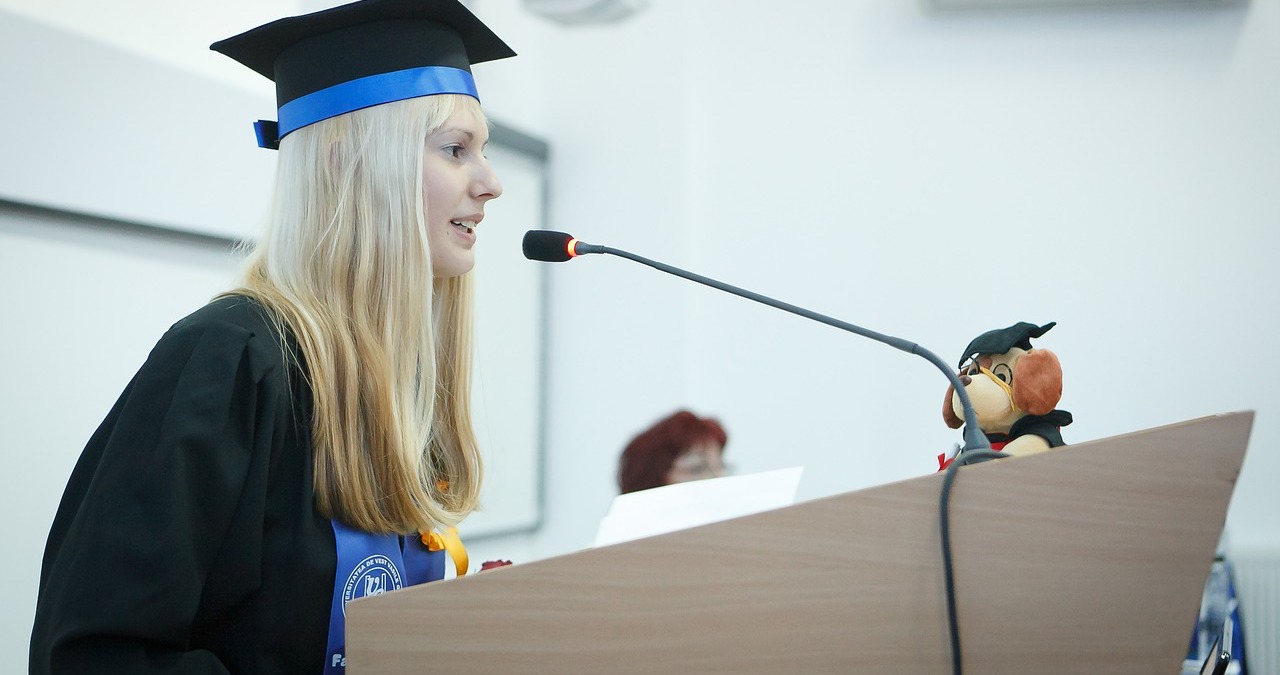
Example of a Valedictorian Speech
Use this example of a valedictorian speech to inspire you to write one of your own.

Motivational Speech on Losing Weight and Keeping it Off
Example motivational speech on losing weight to give ideas of what to include in a presentation to motivate and inspire an audience to take action.
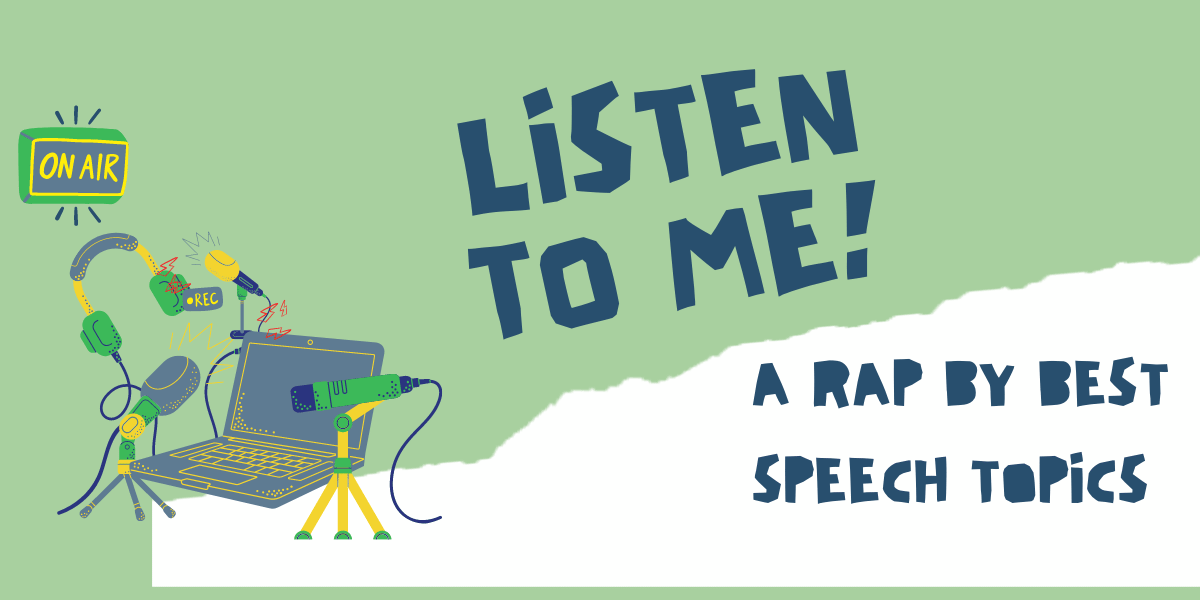
My Rap Speech Sample About Artificial Intelligence and Other Examples
In this article is we explore a recent rap speech sample as a use of rap as a bridge between music and speech. Rap provides a creative way to practice speech.

Example High School Graduation Speech as a Model for Your Own
This example high school graduation speech was sent in by a visitor to Best Speech Topics. It meets all the requirements of a good graduation speech and will give you ideas for what to say on YOUR big day.
Free email delivery
MASTER INFORMATIVE SPEAKING WITH OUR FREE CHECKLIST!
We are offering you a FREE SpeakFlight Informative Speaking Preparation Checklist. This valuable resource is packed with step-by-step guidance to help you create compelling, memorable, and effective informative speeches.
Share this page

Easily search your speech type
Just check out the sitemap for best-speech-topics.com , which lists all the pages on the site, or use the search box below:
Return to the Top of the Page
Get to Know Us
- Privacy Policy
Attention Grabbers
- Positive Quotes for Kids
- Quotes for Graduation Speeches
- Poems & Quotes on Death
- Quotes on Retirement
Most Popular Pages
- Free Samples
- Good Speech Topics
- Hypnotize Your Audience
- Welcome Speech
Select a Speech Topic
- Argumentative
- Commemorative
- Inspirational
- Interesting
- Other Topics
Let Us Help You
- How To Write a Speech
- Demonstration Outline
- Informative Outline
- Introductions
- Using a Microphone
- Speech Help
- Speeches Made Easy

Speech on Importance Of Proper Sleep
Sleep is more than just a nightly routine. It’s a vital part of life, just like eating or breathing. Without a good night’s sleep, your body and mind can’t function at their best.
Ignoring proper sleep can lead to many problems. It’s not just about feeling tired; it can affect your health, mood, and overall well-being. So, let’s understand the importance of proper sleep.
1-minute Speech on Importance Of Proper Sleep
Ladies and Gentlemen, boys and girls, let’s talk about something we all love – sleep. Sleep is not just about closing your eyes and dreaming. It’s much more than that. It’s like a superpower that keeps us healthy, happy, and sharp.
Next, let’s think about our brains. When we’re sleeping, our brain is like a supercomputer, sorting and storing all the things we learned during the day. It’s like a giant filing cabinet, keeping our memories safe. If we don’t sleep, we can forget things, find it hard to focus, and even have trouble solving simple problems.
Our mood is another thing that sleep impacts. With good sleep, we wake up feeling happy and ready to face the day. But without it, we can feel grumpy, sad, or even angry. Sleep helps us keep our emotions stable.
Lastly, sleep is important for our safety. When we’re tired, we might make mistakes. We could drop things, trip over, or even have accidents. Good sleep keeps us alert and helps us stay safe.
In conclusion, sleep is very important. It’s like a magic potion for our body, brain, mood, and safety. So, let’s all promise to make sleep a priority, not just something we do when we have time. Good sleep equals a good life. Thank you.
2-minute Speech on Importance Of Proper Sleep
Ladies and gentlemen, boys and girls, today I stand before you to talk about a topic that affects us all: the importance of proper sleep.
Think of sleep like the fuel for your car. Without it, the car won’t run well, if it runs at all. Our bodies are the same. Without enough sleep, we can’t think clearly, remember things, or feel our best.
Proper sleep makes our minds sharper. When we sleep, our brain sorts out everything we learned during the day. It’s like our brain is a closet, and sleep is the time when we tidy it up. If we don’t sleep enough, our closet becomes messy, and we struggle to find things we need, like memories or facts.
Sleep also helps our bodies stay healthy. While we sleep, our bodies are busy fixing and building things. They heal wounds, grow muscles, and even fight off sickness. If we don’t sleep enough, it’s like a construction site with no workers. Things take longer to fix, and we might get sick more often.
But what about feeling good? Well, sleep plays a big part in that, too. When we sleep, our bodies release hormones that help us feel happy and calm. Without enough sleep, we might feel grumpy, sad, or stressed. It’s like running out of sunshine on a cloudy day.
Now, you might be thinking, “I’ll just sleep more on the weekends to make up for it.” But that’s like eating all your meals for the week on Saturday. Your body needs regular, consistent sleep to function best.
Lastly, let’s imagine life without proper sleep. You’re at school, but you can’t focus on what the teacher is saying. You’re at soccer practice, but your legs feel too tired to run. You’re at home, but you’re too grumpy to play with your siblings. This is what happens when we don’t get enough sleep.
So, how can we get proper sleep? It’s simple. Make a bedtime routine and stick to it. Turn off screens an hour before bed. Make your room quiet, dark, and cool. And most importantly, make sleep a priority, just like eating healthy or exercising.
Leave a Reply Cancel reply
Your email address will not be published. Required fields are marked *
Why Do We Need Sleep?

Contributing Writer
Lucy Bryan is a writer and editor with more than a decade of experience in higher education. She holds a B. A. in journalism from the University of North Carolina at Chapel Hill and an M.F.A. in creative writing from Penn State University.
Want to read more about all our experts in the field?

Dr. Brandon Peters
Sleep Physician, Sleep Psychiatry Expert
Brandon R. Peters, M.D., FAASM, is a double board-certified neurologist and sleep medicine specialist and fellow of the American Academy of Sleep Medicine who currently practices at Virginia Mason Franciscan Health in Seattle. He is a leading voice in sleep medicine who works at the cutting edge of medicine and technology to advance the field.
Sleep Foundation
Fact-Checking: Our Process
The Sleep Foundation editorial team is dedicated to providing content that meets the highest standards for accuracy and objectivity. Our editors and medical experts rigorously evaluate every article and guide to ensure the information is factual, up-to-date, and free of bias.
The Sleep Foundation fact-checking guidelines are as follows:
- We only cite reputable sources when researching our guides and articles. These include peer-reviewed journals, government reports, academic and medical associations, and interviews with credentialed medical experts and practitioners.
- All scientific data and information must be backed up by at least one reputable source. Each guide and article includes a comprehensive bibliography with full citations and links to the original sources.
- Some guides and articles feature links to other relevant Sleep Foundation pages. These internal links are intended to improve ease of navigation across the site, and are never used as original sources for scientific data or information.
- A member of our medical expert team provides a final review of the content and sources cited for every guide, article, and product review concerning medical- and health-related topics. Inaccurate or unverifiable information will be removed prior to publication.
- Plagiarism is never tolerated. Writers and editors caught stealing content or improperly citing sources are immediately terminated, and we will work to rectify the situation with the original publisher(s)
- Although Sleep Foundation maintains affiliate partnerships with brands and e-commerce portals, these relationships never have any bearing on our product reviews or recommendations. Read our full Advertising Disclosure for more information.
Table of Contents
Why Getting Enough Sleep Is Important
The science behind why we sleep, how much sleep do i need, the effects of a lack of sleep, how to always get a good night’s sleep.
If you’ve stayed awake all night—by choice, out of necessity, or in spite of your efforts to sleep—you know just how critical sleep is to your wellbeing. Everyone needs sleep, but about one in three American adults don’t get enough of it.
The consequences of sleep deprivation are serious, so it’s worth learning why sleep matters, how it works, and how to give yourself the best chances of getting a good night’s sleep.
Sleep is an essential function that allows your body and mind to recharge, leaving you refreshed and alert when you wake up. Healthy sleep also helps the body remain healthy and stave off diseases. Without enough sleep, the brain cannot function properly, impairing your abilities to concentrate, think clearly, and process memories.
Is Your Troubled Sleep a Health Risk?
A variety of issues can cause problems sleeping. Answer three questions to understand if it’s a concern you should worry about.
Sleep serves a variety of important physical and psychological functions, including:
- Learning and memory consolidation: Sleep helps with focus and concentration—and it allows the brain to register and organize memories —all of which are vital to learning.
- Emotional regulation: Sleep helps people regulate their emotions Trusted Source National Library of Medicine, Biotech Information The National Center for Biotechnology Information advances science and health by providing access to biomedical and genomic information. View Source and better manage the physical and psychological effects of stress.
- Judgment and decision making: Sleep influences a person’s ability to recognize danger and threats. Trusted Source National Library of Medicine, Biotech Information The National Center for Biotechnology Information advances science and health by providing access to biomedical and genomic information. View Source Healthy sleep supports sound judgment, good decision making, and other executive functions.
- Problem solving: Research shows that “sleeping on” a complex problem improves a person’s chance of solving it. Trusted Source National Library of Medicine, Biotech Information The National Center for Biotechnology Information advances science and health by providing access to biomedical and genomic information. View Source
- Energy conservation: Sleep allows people to conserve energy through an extended period of reduced activity.
- Growth and healing: Sleep provides the release of growth hormone necessary for the body’s tissues to grow and repair damage.
- Immunity: Sleep supports immune function , allowing the body to fight off diseases and infections.
Human beings, like all species on Earth, evolved to survive and thrive on a planet with a 24-hour cycle of day and night. According to some theories of sleep, Trusted Source National Library of Medicine, Biotech Information The National Center for Biotechnology Information advances science and health by providing access to biomedical and genomic information. View Source sleeping in one consolidated block at night allowed early humans to simultaneously avoid predators, conserve energy, and meet their need for rest. It also kept them from having to adapt to life in two very different conditions—daylight and darkness.
The biological patterns that help humans live according to the 24-hour day-night cycle are called circadian rhythms . These rhythms work alongside the sleep drive —a desire to sleep that grows in intensity the longer a person has been awake—to cause people to feel sleepy at night and alert in the morning.
Circadian rhythms, including the sleep-wake cycle, operate according to environmental cues. Every evening, as darkness sets in, the body begins releasing the sleep hormone melatonin—and every morning, with the arrival of light , the body’s melatonin levels become undetectable. An evening drop and morning rise in body temperature accompanies this cycle, enhancing sleepiness and alertness at the right times.
Stages of Sleep
Our sleep architecture—that is, the way the body cycles through specific stages of sleep —enables the beneficial processes that occur during sleep, such as healing and learning. There are three non-rapid eye movement (non-REM) stages of sleep followed by rapid eye movement (REM), the final stage of sleep. Experiencing all four usually takes anywhere from 1.5 to 2 hours. Trusted Source UpToDate More than 2 million healthcare providers around the world choose UpToDate to help make appropriate care decisions and drive better health outcomes. UpToDate delivers evidence-based clinical decision support that is clear, actionable, and rich with real-world insights. View Source
- Stage N1: This is the lightest stage of sleep, and it usually only lasts a few minutes.
- Stage N2: Healthy adults usually spend about half of the night in N2 sleep. While brain activity slows, there are bursts of activity that may help with memory retention and learning.
- Stage N3: N3 sleep, also called “slow wave sleep” or “deep sleep,” helps a person wake up feeling refreshed. During this stage, blood pressure lowers, heart rate and breathing rate slow, and the body secretes growth hormone. People generally spend about 10% to 20% of the night in this stage.
- REM Sleep: As its name suggests, people’s eyes intermittently move rapidly during this sleep stage. Most vivid dreaming takes place during REM sleep, and skeletal muscles become temporarily paralyzed to prevent a person from acting out their dreams. Memory consolidation occurs in this stage. It accounts for 20% to 25% of a typical night of sleep, with more of it occurring towards morning.
Healthy individuals cycle through all four stages of sleep multiple times a night. Regular sleep disruptions, as well as sleep disorders that affect sleep architecture like sleep apnea, can have serious consequences for physical health and mental health .
Experts generally recommend that adults get at least seven hours of sleep per night. Trusted Source National Library of Medicine, Biotech Information The National Center for Biotechnology Information advances science and health by providing access to biomedical and genomic information. View Source However, sleep needs can vary dramatically from person to person. Your activity level, your health status, and many other factors influence how much sleep you need , but the optimal number of hours typically falls within a specific range depending on your age and stage in life.
| Age Group | Age Range | Recommended Amount of Sleep per Day |
|---|---|---|
| Infant | 4-12 months | 12-16 hours |
| Toddler | 1-2 years | 11-14 hours |
| Preschool | 3-5 years | 10-13 hours |
| School-age | 6-12 years | 9-12 hours |
| Teen | 13-18 years | 8-10 hours |
| Adult | 18 years and older | 7 hours or more |
Not getting the amount of sleep your body needs can have serious consequences. Just one sleepless night can make it harder for you to focus and think clearly, and you might feel tired or sluggish during the day. You’re more likely to feel irritable and to exercise poor judgment when you haven’t had enough sleep. And sleep deprivation significantly elevates your risk Trusted Source UpToDate More than 2 million healthcare providers around the world choose UpToDate to help make appropriate care decisions and drive better health outcomes. UpToDate delivers evidence-based clinical decision support that is clear, actionable, and rich with real-world insights. View Source of making a mistake at work or having a car accident.
Long-term sleep deprivation carries all these risks and more. Chronic insufficient sleep may:
- Suppress your immune system, increasing your susceptibility to sickness and infection
- Increase your risk of developing heart problems, type 2 diabetes, and high blood pressure
- Interfere with your metabolism and elevate your risk for obesity
- Cause your relationships to suffer at work and at home
- Lead to depression and anxiety
The effects of sleep debt compound quickly, so the sooner you can address sleep difficulties, the better.

The good news is that many sleep problems improve and even disappear when you take the right steps to treat them. Start by implementing healthy sleep hygiene practices at home.
- Get at least 20 minutes of exposure to natural light in the morning.
- Commit to a regular sleep schedule.
- Adopt a relaxing bedtime routine.
- Make sure your bedroom environment is cool, dark, quiet, and comfortable.
- Avoid electronics with screens in the hour before bed.
- Exercise regularly and early in the day.
- Avoid alcohol, nicotine, and caffeine in the hours before bed.
If you have trouble sleeping even after taking these steps, contact your doctor. With the right treatments, you can get the sleep your body needs.
- New Research Evaluates Accuracy of Sleep Trackers
- Listening to Calming Words While Asleep Boosts Deep Sleep
- Distinct Sleep Patterns Linked to Health Outcomes
- Association Between Sleep Duration and Disturbance with Age Acceleration
About Our Editorial Team

Lucy Bryan, Contributing Writer

Medically Reviewed by
Dr. Brandon Peters, Sleep Physician, Sleep Psychiatry Expert
References 7 sources.
Vandekerckhove, M., & Wang, Y. L. (2017). Emotion, emotion regulation and sleep: An intimate relationship. AIMS neuroscience, 5(1), 1–17.
Khan, M. A., & Al-Jahdali, H. (2023). The consequences of sleep deprivation on cognitive performance. Neurosciences (Riyadh, Saudi Arabia), 28(2), 91–99.
Sio, U. N., Monaghan, P., & Ormerod, T. (2013). Sleep on it, but only if it is difficult: effects of sleep on problem solving. Memory & cognition, 41(2), 159–166.
Freiberg A. S. (2020). Why We Sleep: A Hypothesis for an Ultimate or Evolutionary Origin for Sleep and Other Physiological Rhythms. Journal of circadian rhythms, 18, 2.
Kirsch, D. (2024, March). Stages and architecture of normal sleep. In S. Harding & A.Eichler (Ed.). UpToDate.
Consensus Conference Panel, Watson, N. F., Badr, M. S., Belenky, G., Bliwise, D. L., Buxton, O. M., Buysse, D., Dinges, D. F., Gangwisch, J., Grandner, M. A., Kushida, C., Malhotra, R. K., Martin, J. L., Patel, S. R., Quan, S. F., Tasali, E., Non-Participating Observers, Twery, M., Croft, J. B., Maher, E., … Heald, J. L. (2015). Recommended amount of sleep for a healthy adult: A joint consensus statement of the American Academy of Sleep Medicine and Sleep Research Society. Journal of Clinical Sleep Medicine, 11(6), 591–592.
Maski, K. (2024, March). Insufficient sleep: Evaluation and management. In T. Scammell & A. Eichler (Ed.). UpToDate.
Learn More About How Sleep Works

How to Become a Morning Person
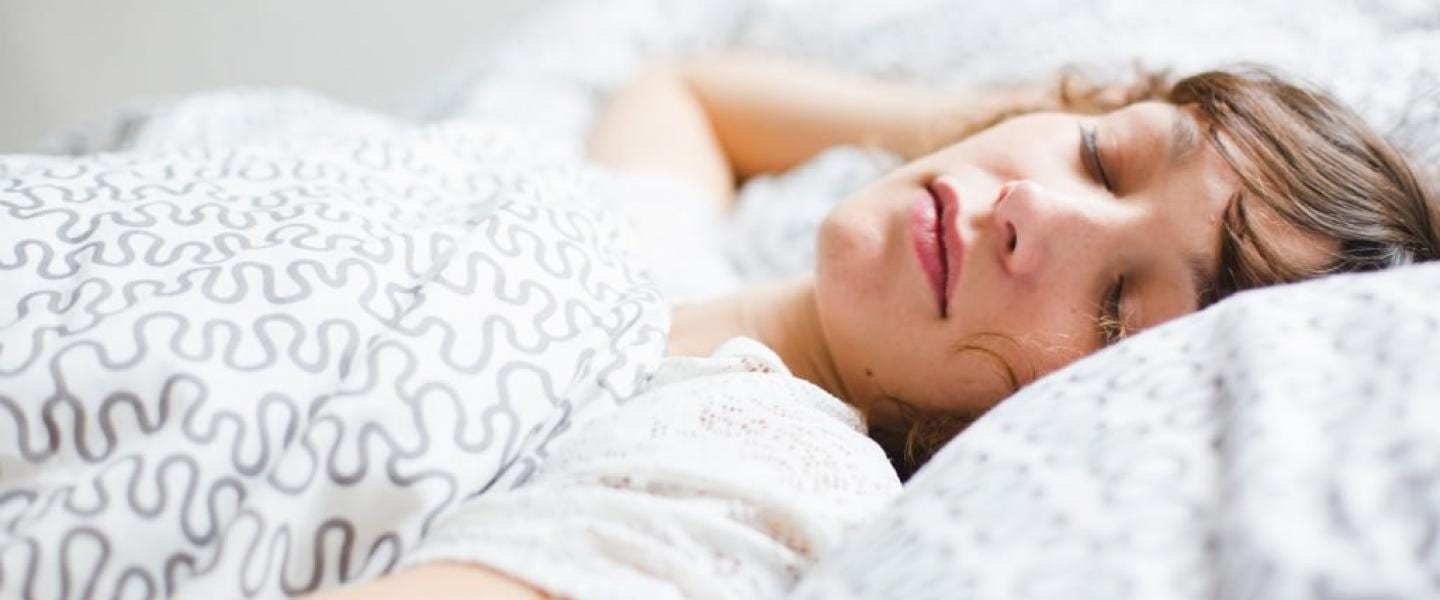
How Much Sleep Do You Need?

How Memory and Sleep Are Connected
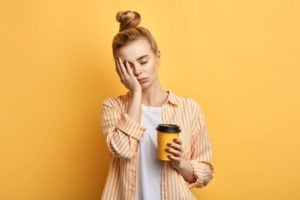
What Causes Excessive Sleepiness?
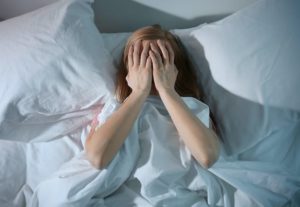
What Causes Restless Sleep?
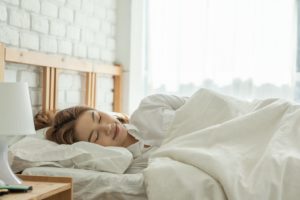
Biphasic Sleep: What It Is And How It Works
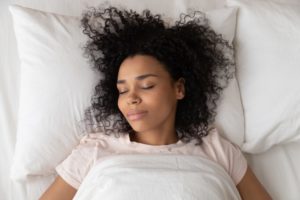
Polyphasic Sleep: Benefits and Risks
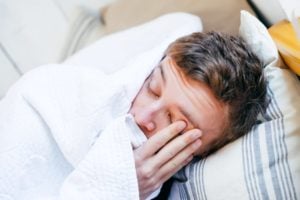
Sleep Inertia: How to Combat Morning Grogginess
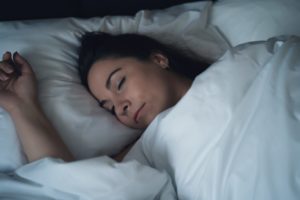
REM Rebound: Causes and Effects

Do Moon Phases Affect Your Sleep?

Alpha Waves and Sleep
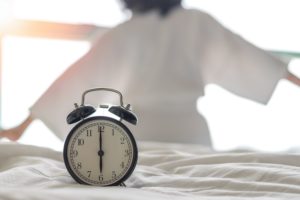
How Age Affects Your Circadian Rhythm
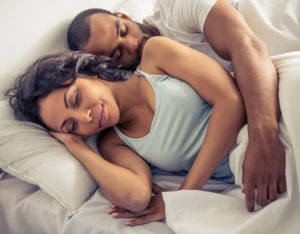
How Is Sleep Different For Men and Women?

Circadian Rhythm

Chronotypes: Definition, Types, & Effect on Sleep
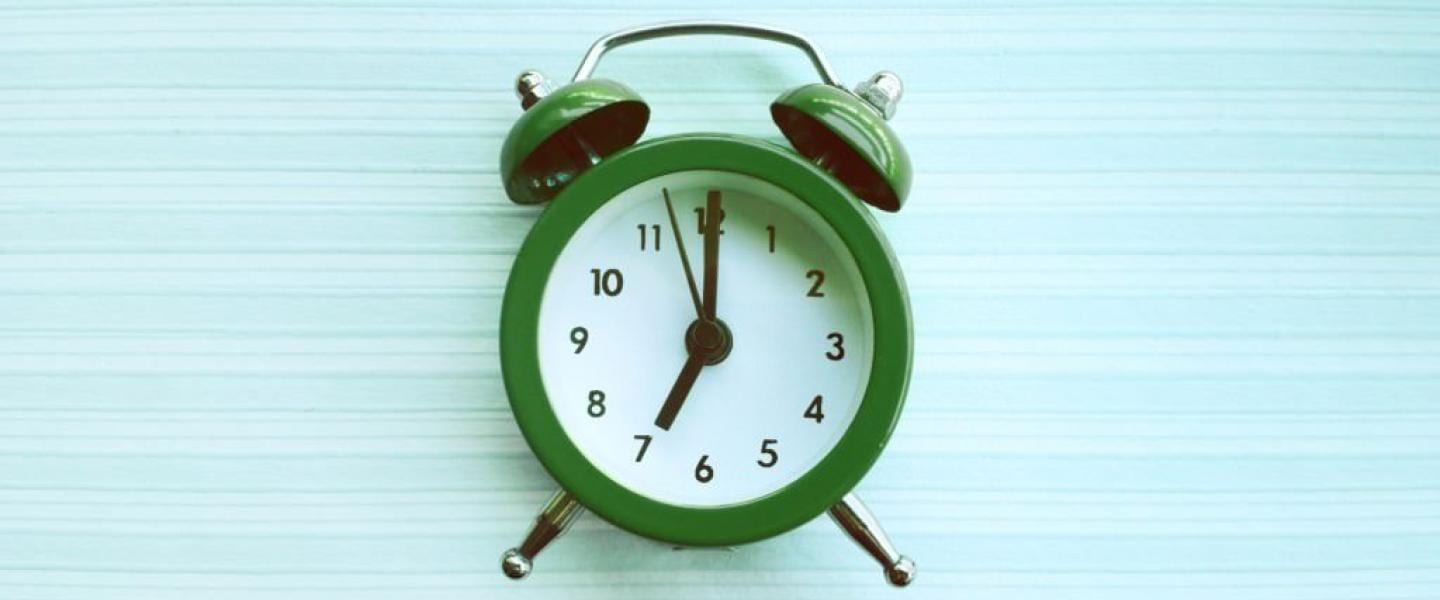
Sleep Drive and Your Body Clock

8 Health Benefits of Sleep
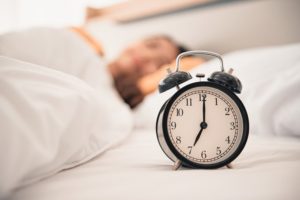
Daylight Saving Time: Everything You Need to Know

How To Get a Good Night’s Sleep in a Hotel

Does Napping Impact Your Sleep at Night?

Does Daytime Tiredness Mean You Need More Sleep?

Why Do I Wake Up at 3 am?
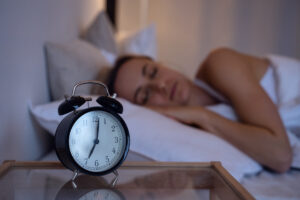
Sleep Debt: The Hidden Cost of Insufficient Rest

Sleep Satisfaction and Energy Levels
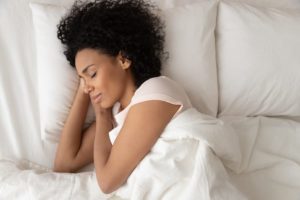

How Sleep Works: Understanding the Science of Sleep

What Makes a Good Night's Sleep

What Happens When You Sleep?

Sleep and Social Media

Adenosine and Sleep: Understanding Your Sleep Drive
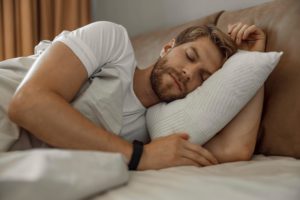
Oversleeping
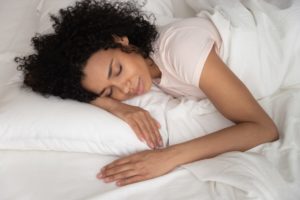
Hypnagogic Hallucinations
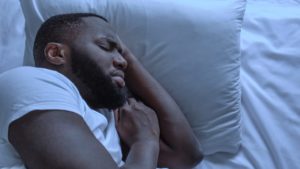
Hypnopompic Hallucinations

What All-Nighters Do To Your Cognition
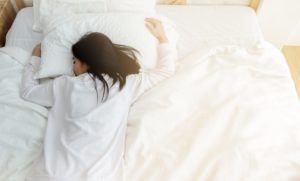
Long Sleepers

How to Wake Up Easier
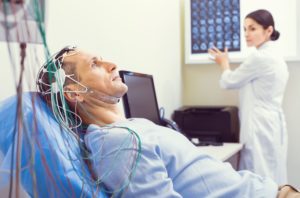
Sleep Spindles
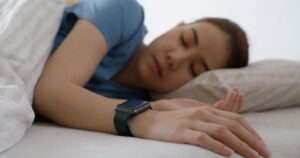
Does Your Oxygen Level Drop When You Sleep?
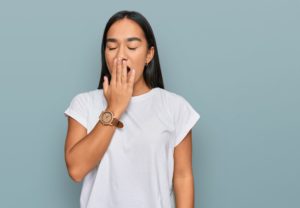
100+ Sleep Statistics
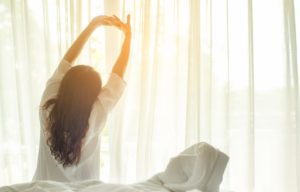
Short Sleepers

How Electronics Affect Sleep
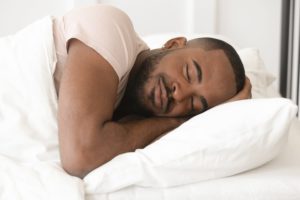
Myths and Facts About Sleep
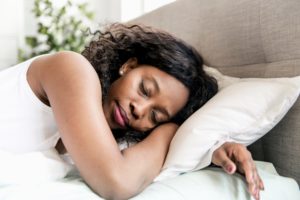
What’s the Connection Between Race and Sleep Disorders?
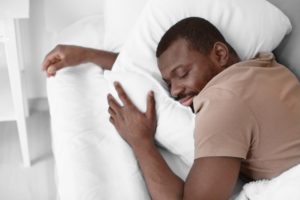
Sleep Latency

Microsleep: What Is It, What Causes It, and Is It Safe?

Light Sleeper: What It Means and What To Do About It
Other articles of interest, best mattresses, sleep testing and solutions, bedroom environment, sleep hygiene.
- Type 2 Diabetes
Heart Disease
- Digestive Health
- Multiple Sclerosis
- Diet & Nutrition
- Health Insurance
- Public Health
- Patient Rights
- Caregivers & Loved Ones
- End of Life Concerns
- Health News
- Thyroid Test Analyzer
- Doctor Discussion Guides
- Hemoglobin A1c Test Analyzer
- Lipid Test Analyzer
- Complete Blood Count (CBC) Analyzer
- What to Buy
- Editorial Process
- Meet Our Medical Expert Board
Why a Good Night’s Sleep Is Important for Your Health
- Restoration
- Stress Reduction
- Body Weight
- Illness Prevention
- Mental Health
How to Improve Your Sleep
Sleep is important due to the impact it has on your overall health. Appropriate sleep is needed for mental focus and memory, managing stress, maintaining proper body weight, boosting the immune system, and a host of other wellness needs. Some studies suggest sleep can help to prevent illness, such as diabetes or obesity .
Adults aged 18 to 60 years should get at least seven hours of sleep each night in order to achieve the benefits of sleep. If not, you run the risk of becoming sleep-deprived .
This article explains the role of sleep in overall health and offers tips on how to improve your sleep. Research on sleep and sleep cycles has elevated awareness about sleep hygiene (healthy sleep habits) and the quality of sleep.
Illustration by Emily Roberts for Verywell Health
Sleep Is Restorative
When you sleep, you allow your body to repair and rebuild. During this time, the body is able to clear debris from the lymphatic system, which boosts the immune system.
While you sleep, there are many important processes that happen, including:
- Muscle repair
- Protein synthesis
- Tissue growth
- Hormone release
Sleep Reduces Stress
Sleep is a powerful stress reliever. It improves concentration, regulates mood, and sharpens judgment and decision-making. A lack of sleep not only reduces mental clarity but the ability to cope with stressful situations.
This is due, in part, to changes in cortisol levels. Typically, your cortisol levels fall in the evening hours, as one element of the body’s natural preparation for sleep. When sleep is lost, cortisol levels remain high and interfere with the release of melatonin, a hormone that is essential for the regulation of sleep-wake cycles.
Some studies suggest these changes could even be used to evaluate depression in people with bipolar disorder. Other studies demonstrate a link between sleep, chronic stress, and depression with an eye on heart rate changes.
Sleep Improves Your Memory
The link between sleep and memory processing is well established. Sleep serves as an opportunity for the mind to process all the stimuli taken in while awake. It triggers changes in the brain that strengthen neural connections helping us to form memories.
Sleep quality is important when learning new information and using memory. Numerous research studies find that electrophysiological, neurochemical, and genetic mechanisms that take place during the slow-wave sleep stage of sleep are key.
Sleep Helps You Maintain a Healthy Body Weight
When you are sleep deprived, your body alters the hormones that regulate hunger and appetite. These hormones include:
- Leptin: This hormone suppresses appetite and encourages the body to expend energy.
- Ghrelin: This hormone triggers feelings of hunger.
Both of these hormones are thrown off when you are short on sleep—leptin goes down and ghrelin goes up. Obstructive sleep apnea , a serious sleep disorder, is linked with obesity as well.
Sleep and Appetite
Sleep deprivation can activate the endocannabinoid (eCB) system in the brain (the same areas activated by marijuana) which increases hunger and appetite. Stimulating the eCB reward system makes you more likely to crave junk food. You are also more likely to make these unhealthy lifestyle choices when you are tired. If that's often the case, it can lead to weight gain or diabetes over time.
Sleep May Prevent Illnesses
Sleep deprivation can have very detrimental health impacts and has been linked to chronic diseases such as diabetes and heart disease. Here are some of the health conditions in which it may play a role.
Respiratory Illness and Infection
Lack of sleep makes you more vulnerable to respiratory illness and infection. A study of more than 600,000 people found that insomnia was a contributing cause when catching a cold or the flu , as well as a factor in how severe the infection became.
Obstructive sleep apnea, a common sleep disturbance, is linked with a number of cardiovascular (heart and blood vessel) diseases. For example, 40% to 60% of people experiencing symptomatic heart failure also are diagnosed with sleep-disordered breathing.
Other heart conditions linked with sleep apnea include:
- Coronary artery disease
- Pulmonary hypertension
- High blood pressure
- Heart arrhythmias
There's no direct evidence to suggest that sleep quantity or quality affects the risk of cancer, although studies have looked at the role of sleep in developing breast cancer , lung cancer , and more.
For example, research on lung cancer suggests a relationship between lack of sleep and adenocarcinoma risk, but more research on sleep traits (how long you sleep, whether you take naps) is needed.
Studies also are exploring the role of sleep in those already diagnosed with cancer, especially because difficulty sleeping affects up to 95% of people receiving cancer treatment and care. Sleep deprivation may affect the body's ability to fight cancer and lead to a poor prognosis, which was the conclusion of researchers focused on liver cancer .
A number of studies have shown that sleep deprivation leads to reduced glucose tolerance and impaired insulin sensitivity in humans. Additional studies suggest the risk of type 2 diabetes rises due to inadequate sleep, with seven or eight hours considered the optimal amount.
Researchers also think the timing of sleep may have impacts, too. Disruptions in circadian rhythm, with many people working at night or otherwise "living against the clock" of natural sleep cycles, also have impacts. Sleep disruption appears to affect metabolism and related diseases.
Neurodegenerative Disease
Sleep plays a key role in how your body produces cerebrospinal fluid (CSF), what it's composed of, and how the CSF is distributed in your brain and spinal cord. A number of studies have looked at how components in CSF, like amyloid-beta levels, might be linked to Alzheimer's disease and other neurodegenerative disorders.
The research results are mixed, but there is evidence to suggest that sleep patterns affect levels of amyloid-beta, orexin, tau proteins, interleukin 8 (IL-8), and other components. This may influence the development of Lewy body dementia, Parkinson's, or Alzheimer's disease, or it may contribute to sleep disruptions that are common in people living with these disorders.
Researchers also are investigating the role of CSF, sleep, and the early development of autism .
Sleep Is Important for Your Mental Health
Evidence suggests lack of sleep contributes to the formation of new mental health problems and to the maintenance of existing ones, but the magnitude of its effect is difficult to estimate and may be different across mental health conditions.
Sleep problems are very common in those with mental illness. In fact, disrupted sleep is commonly seen as both a symptom and consequence of mental health disorders, although sleep deprivation is rarely treated as the cause of mental health conditions.
The most common sleep problem associated with poor mental health is insomnia, with symptoms of:
- Not feeling well-rested after a night's sleep
- Daytime tiredness or sleepiness
- Irritability, depression, or anxiety
- Difficulty paying attention, focusing on tasks, or remembering
- Increased errors or accidents
- Ongoing worries about sleep
You may experience insomnia for a number of reasons, but the most common culprits are:
- Work schedule
- Poor sleep habits
- Excessive alcohol or caffeine use at night
- Habitual nighttime screen use
Illustration by JR Bee for Verywell Health
Small changes to your nighttime routine can result in a huge health benefit:
- Establish a realistic bedtime and stick to it every night, even on the weekends.
- Maintain comfortable temperature settings and low light levels in your bedroom.
- Consider a “screen ban” on televisions, computers and tablets, cell phones, and other electronic devices in your bedroom.
- Abstain from caffeine, alcohol, and large meals in the hours leading up to bedtime.
- Refrain from using tobacco at any time of day or night.
- Exercise during the day; this can help you wind down in the evening and prepare for sleep.
Sleep is vital to maintaining health, and most adults need seven or more hours each day. There is increasing evidence that adequate, high-quality sleep can help prevent illnesses like respiratory infection as well as limit the risk of diabetes, heart disease, and other serious conditions.
Memory, mood, and mental health also are affected by sleep deprivation and other sleep disorders.
There are lifestyle steps you can take to improve sleep. Talk to your healthcare provider if you have concerns or questions about how sleep patterns are affecting your health.
Antza C, Kostopoulos G, Mostafa S, Nirantharakumar K, Tahrani A. The links between sleep duration, obesity and type 2 diabetes mellitus . J Endocrinol . 2021 Dec 13;252(2):125-141. doi:10.1530/JOE-21-0155.
Watson NF, Badr MS, Belenky G, Bliwise DL, Buxton OM, Buysse D, et al . Recommended Amount of Sleep for a Healthy Adult: A Joint Consensus Statement of the American Academy of Sleep Medicine and Sleep Research Society . Sleep . 2015 Jun 1;38(6):843-4. doi:10.5665/sleep.4716.
Chong PLH, Garic D, Shen MD, Lundgaard I, Schwichtenberg AJ. Sleep, cerebrospinal fluid, and the glymphatic system: A systematic review . Sleep Med Rev . 2022 Feb;61:101572. doi:10.1016/j.smrv.2021.101572.
Walker WH 2nd, Walton JC, DeVries AC, Nelson RJ. Circadian rhythm disruption and mental health . Transl Psychiatry . 2020 Jan 23;10(1):28. doi:10.1038/s41398-020-0694-0.
da Estrela C, McGrath J, Booij L, Gouin JP. Heart Rate Variability, Sleep Quality, and Depression in the Context of Chronic Stress . Ann Behav Med . 2021 Mar 16;55(2):155-164. doi:10.1093/abm/kaaa039.
Tucker MA, Humiston GB, Summer T, Wamsley E. Comparing the effects of sleep and rest on memory consolidation . Nature and Science of Sleep . 2020 Feb 3;12:79-91. doi:10.2147/NSS.S223917
Rasch B, Born J. About sleep’s role in memory . Physiological Reviews . 2013;93(2):681-766. doi: 10.1152/physrev.00032.2012
Chaput JP, McHill AW, Cox RC, Broussard JL, Dutil C, da Costa BGG, Sampasa-Kanyinga H, Wright KP Jr. The role of insufficient sleep and circadian misalignment in obesity . Nat Rev Endocrinol . 2023 Feb;19(2):82-97. doi:10.1038/s41574-022-00747-7.
Yeghiazarians Y, Jneid H, Tietjens JR, Redline S, Brown DL, El-Sherif N, et al . Obstructive Sleep Apnea and Cardiovascular Disease: A Scientific Statement From the American Heart Association . Circulation . 2021 Jul 20;144(3):e56-e67. doi:10.1161/CIR.0000000000000988.
Hanlon EC, Tasali E, Leproult R, Stuhr KL, Doncheck E, de Wit H, Hillard CJ, Van Cauter E. Sleep restriction enhances the daily rhythm of circulating levels of endocannabinoid 2-arachidonoylglycerol . 2016 Mar 1;39(3):653-64. doi:10.5665/sleep.5546
Jones SE, Maisha FI, Strausz SJ, Lammi V, Cade BE, Tervi A, et al . The public health impact of poor sleep on severe COVID-19, influenza and upper respiratory infections . EBioMedicine . 2023 Jul;93:104630. doi:10.1016/j.ebiom.2023.104630
Wang J, Tang H, Duan Y, Yang S, An J. Association between Sleep Traits and Lung Cancer: A Mendelian Randomization Study . J Immunol Res . 2021 Jun 21;2021:1893882. doi:10.1155/2021/1893882.
Büttner-Teleagă A, Kim YT, Osel T, Richter K. Sleep Disorders in Cancer-A Systematic Review . Int J Environ Res Public Health . 2021 Nov 7;18(21):11696. doi:10.3390/ijerph182111696.
Huang J, Song P, Hang K, Chen Z, Zhu Z, Zhang Y, et al . Sleep Deprivation Disturbs Immune Surveillance and Promotes the Progression of Hepatocellular Carcinoma . Front Immunol . 2021 Sep 3;12:727959. doi:10.3389/fimmu.2021.727959.
Parameswaran G, Ray DW. Sleep, circadian rhythms, and type 2 diabetes mellitus . Clin Endocrinol (Oxf) . 2022 Jan;96(1):12-20. doi:10.1111/cen.14607.
Chasens ER, Imes CC, Kariuki JK, Luyster FS, Morris JL, DiNardo MM, et al . Sleep and Metabolic Syndrome . Nurs Clin North Am . 2021 Jun;56(2):203-217. doi:10.1016/j.cnur.2020.10.012.
Scott AJ, Webb TL, Rowse G. Does improving sleep lead to better mental health? A protocol for a meta-analytic review of randomised controlled trials . BMJ Open. 2017;7(9):e016873. Published 2017 Sep 18. doi:10.1136/bmjopen-2017-016873
By Shamard Charles, MD, MPH Shamard Charles, MD, MPH is a public health physician and journalist. He has held positions with major news networks like NBC reporting on health policy, public health initiatives, diversity in medicine, and new developments in health care research and medical treatments.
A collection of TED Talks (and more) on the topic of Sleep.
Video playlists about Sleep

The most popular TED Originals of 2021

Curator's Picks: Top 10 TED Talks of 2019

Talks to inspire you to go to bed and get a good night's sleep
Talks about sleep.
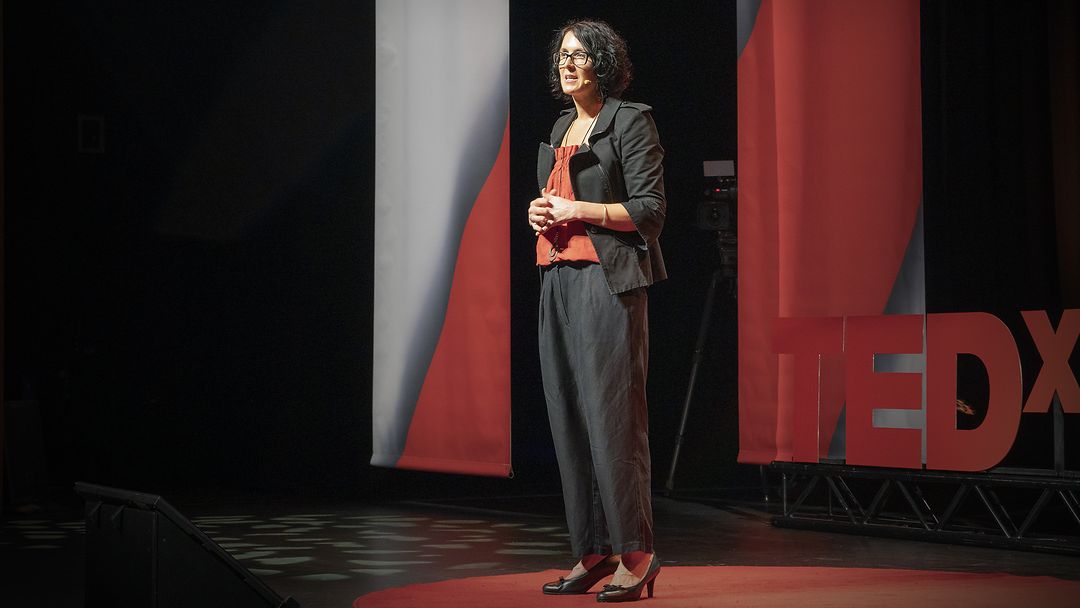
Can cannabis help you sleep? Here's the science
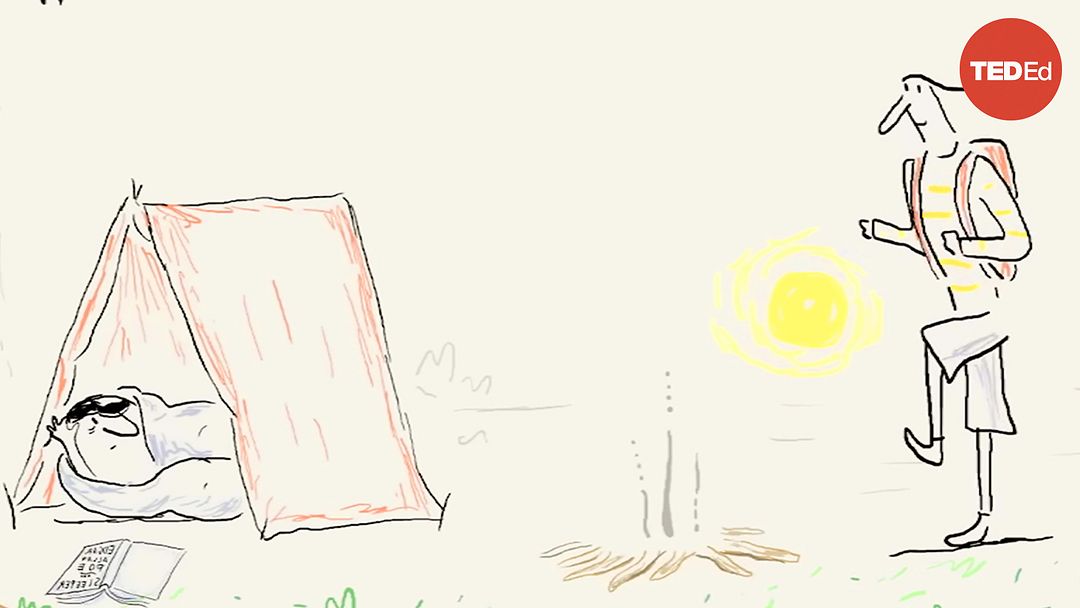
Can you change your sleep schedule?
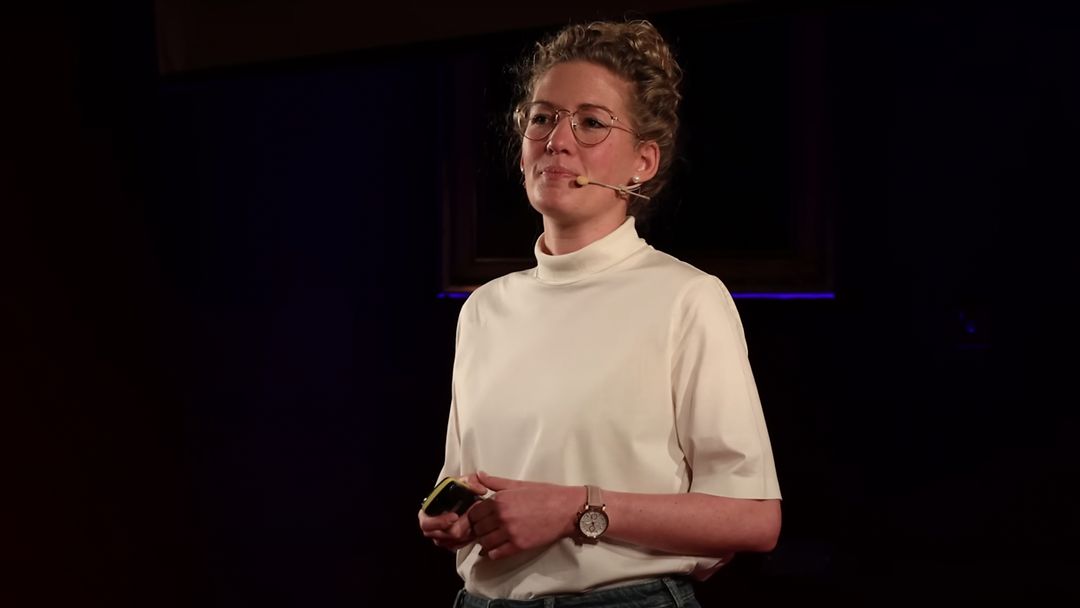
How daylight could help you sleep
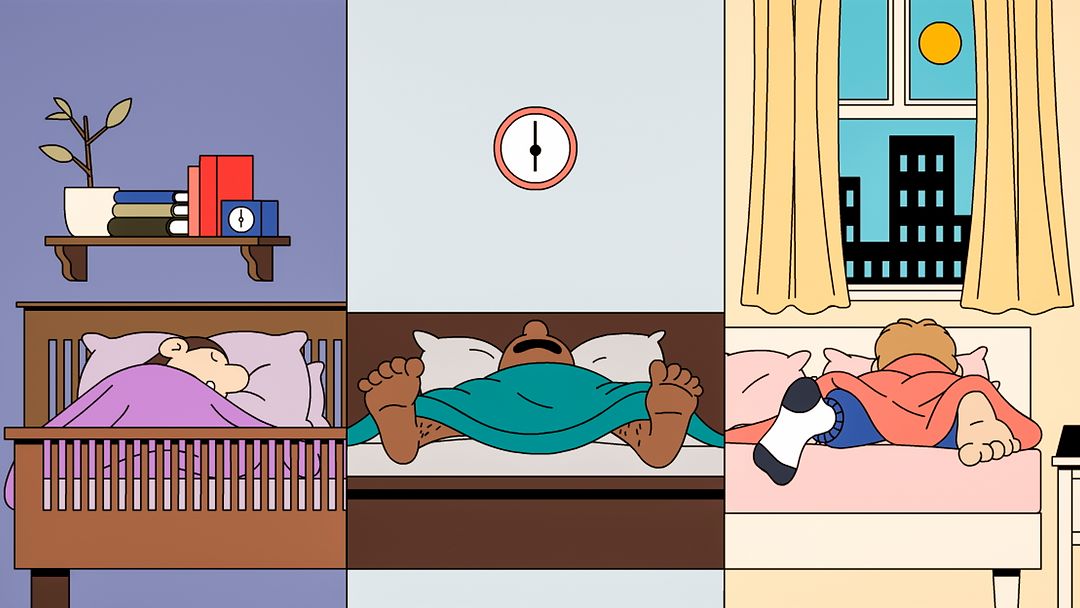
Do you really need 8 hours of sleep every night?
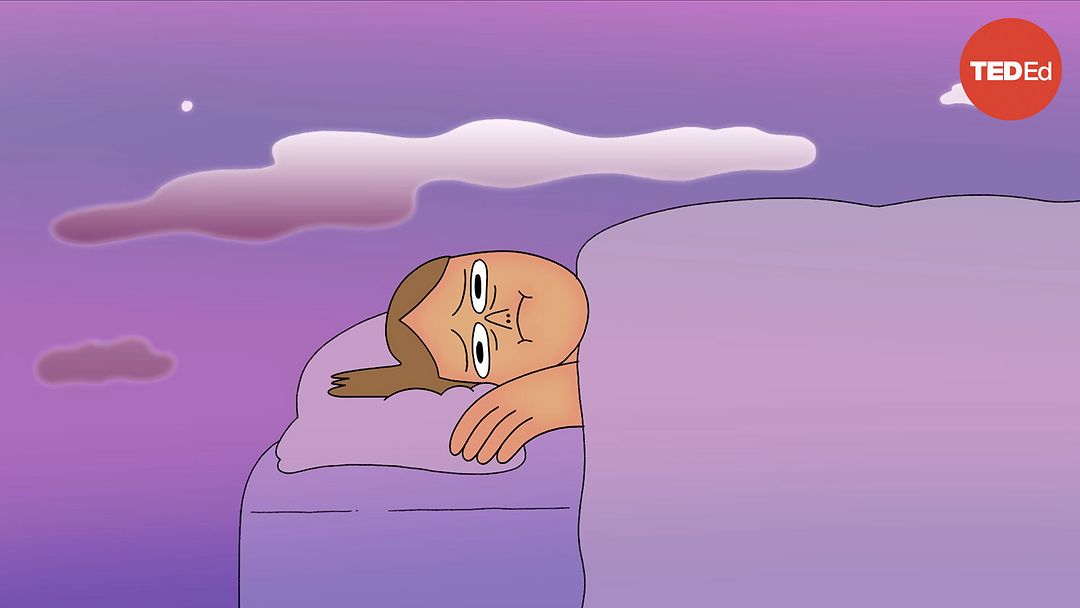
What causes sleepwalking?
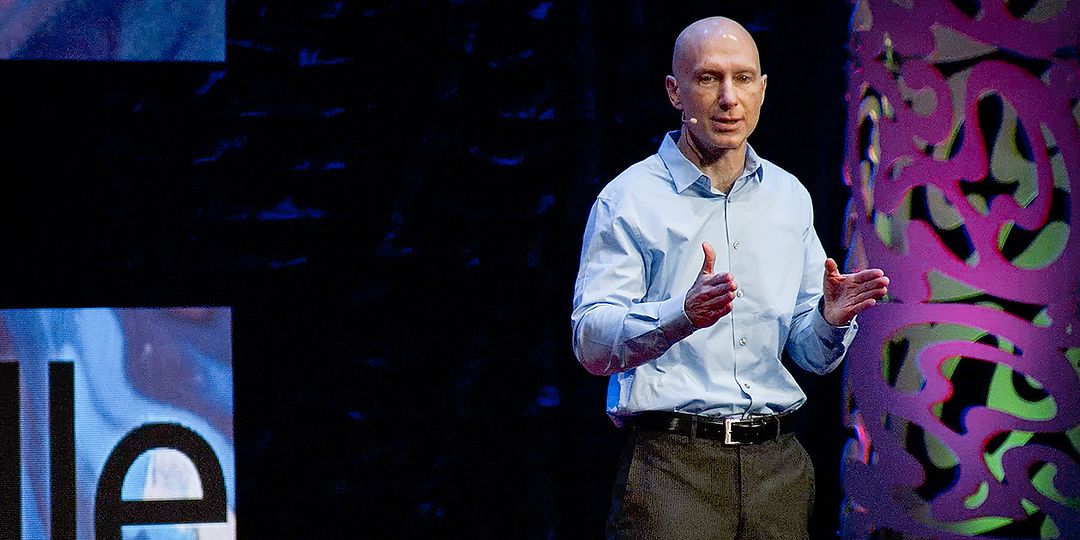
The brain science (and benefits) of ASMR

How do you know you're not dreaming?
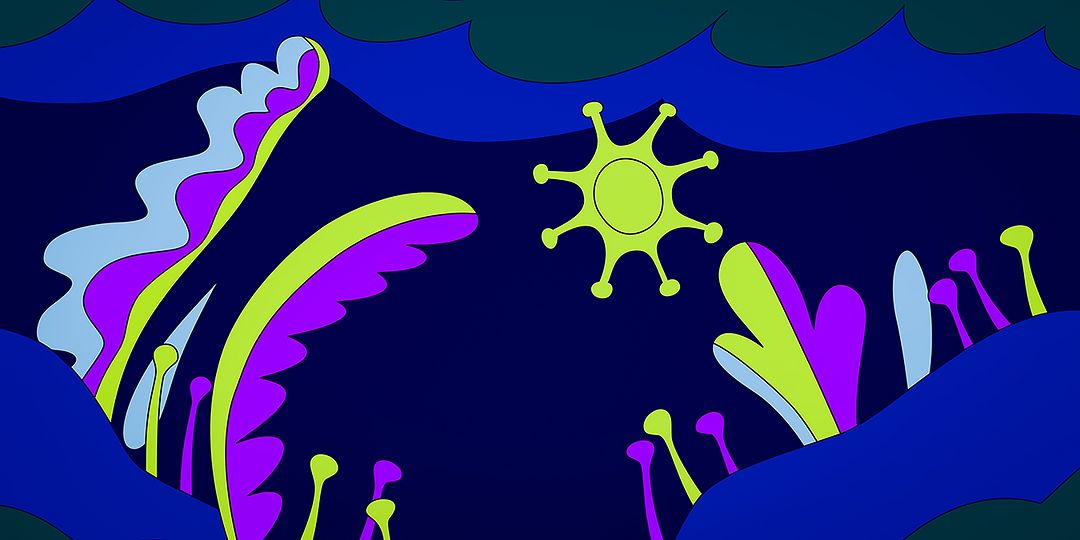
4 ways the COVID-19 pandemic changed the way we sleep
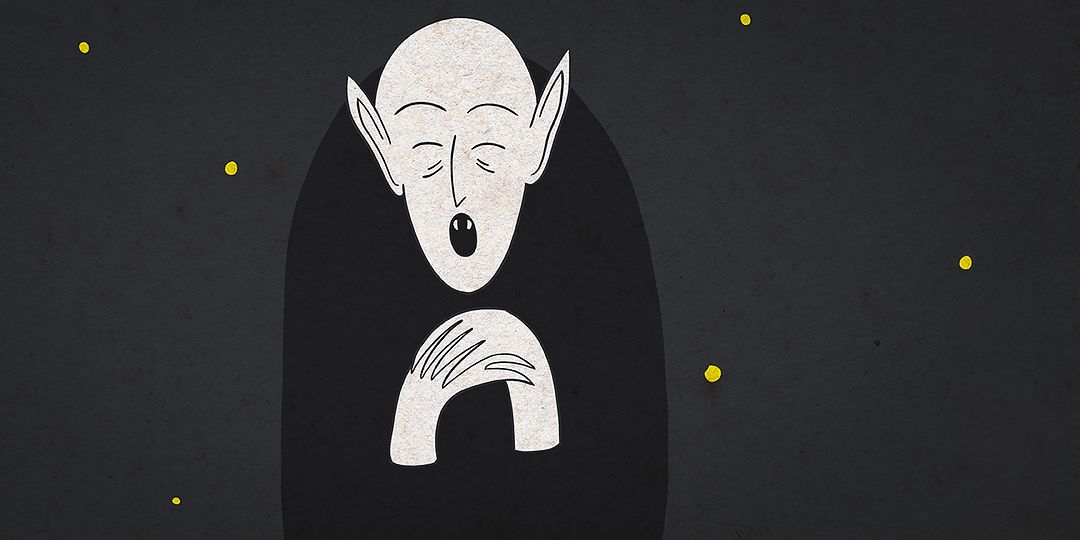
How to deal with your insomnia -- and finally get to sleep

How sleep affects what (and how much) you eat
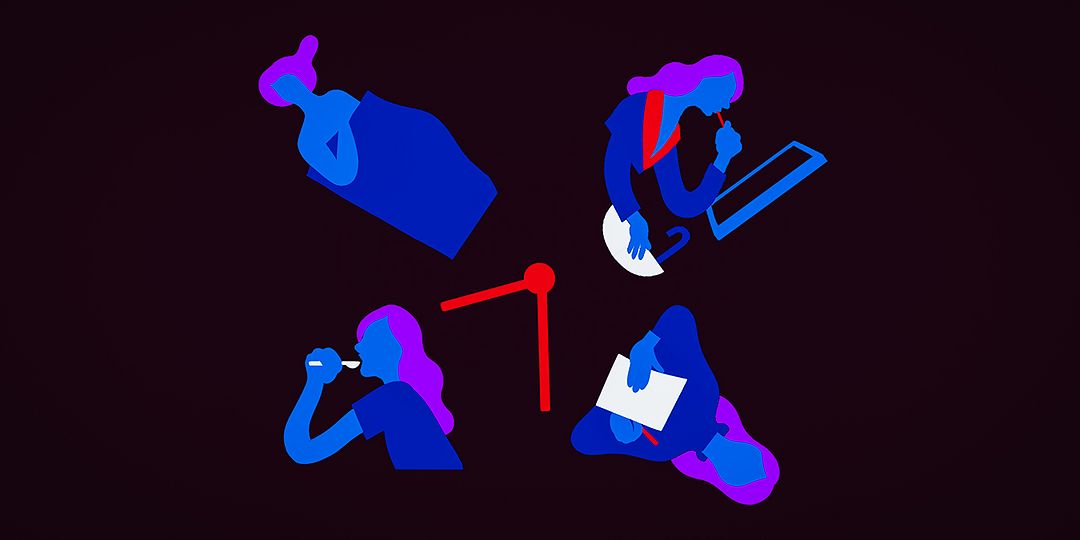
What is melatonin -- and should you take it to fall asleep?
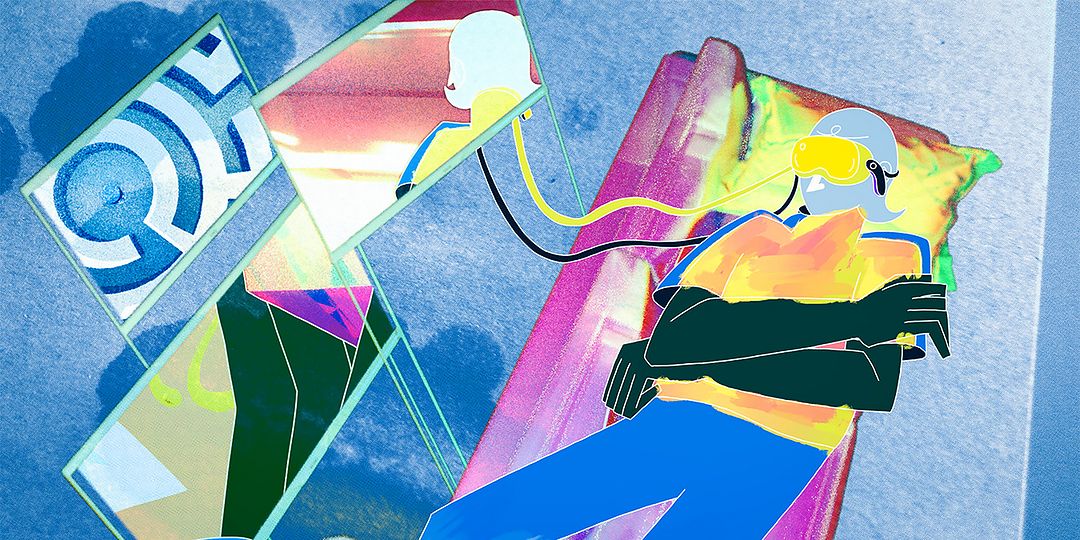
The surprising health benefits of dreaming
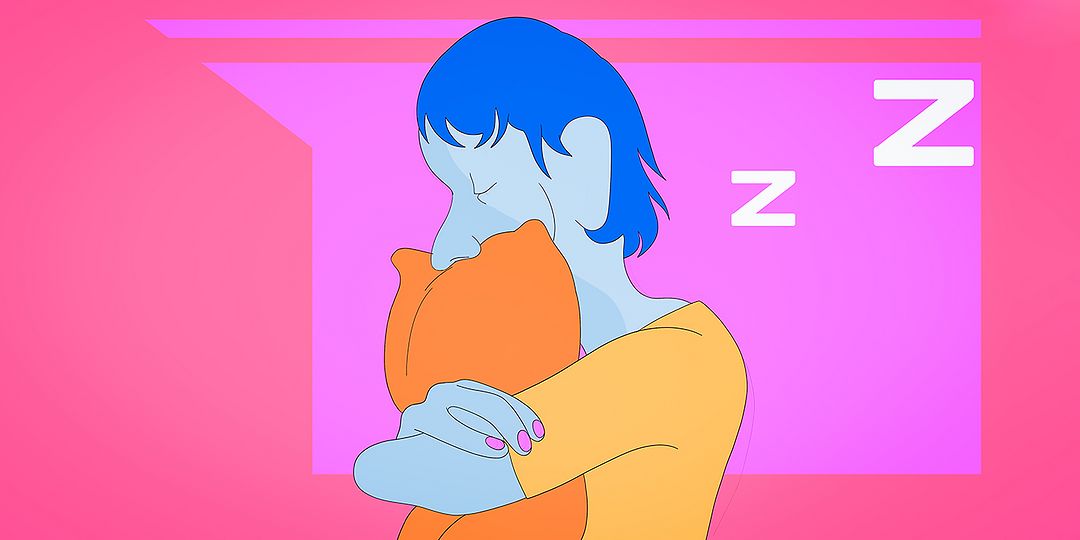
Are naps actually good for us?

Why better sleep means a better sex life
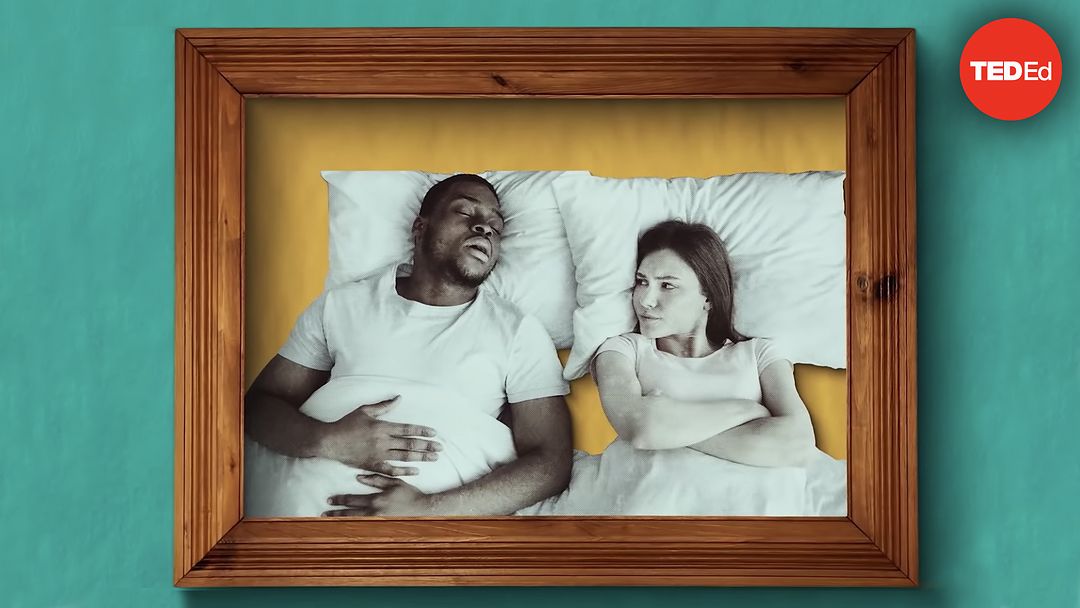
The sleep disorder you might not know you have
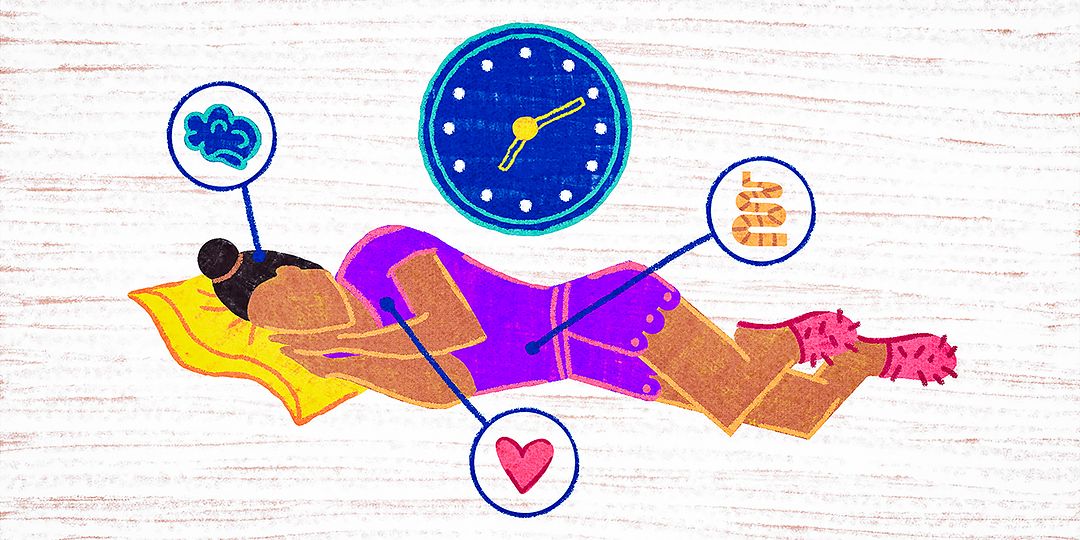
How daylight saving time affects our bodies, minds -- and world
Exclusive articles about sleep, want to keep your relationship on solid ground get enough sleep, the 7 types of rest that every person needs, is sleeping in separate beds bad for your relationship a sleep scientist answers.

IMAGES
VIDEO
COMMENTS
If a sleep-deprived person doesn’t sleep after the initial signs, said Dinges, the person may then start to experience apathy, slowed speech and flattened emotional responses, impaired memory and an inability to be novel or multitask.
Calm your mind and improve your sleep with your FREE sleep guided meditation. https://www.jasonstephenson.net/lp/sleep-meditation/free-sleep-meditation/?utm_...
Go to sleep with this gentle sleep talk down. Sleep easy and relax with this guided meditation for soothing calm and sleep.Please support our work by purchas...
"Sleep maintains all aspects of the body in one way or another: energy and molecular balance, alertness, intellectual function, and mood," when you are tired, you are not performing at your best. But on the other hand, sleep helps you think more clearly, have better reflexes, and focus better.
When we sleep, our brain sorts out everything we learned during the day. It’s like our brain is a closet, and sleep is the time when we tidy it up. If we don’t sleep enough, our closet becomes messy, and we struggle to find things we need, like memories or facts.
Sleep talking, also known as somniloquy, is the act of speaking out loud during sleep. While you’re sleeping, you can: Talk in whispers. Speak at regular volume. Shout whole words or responses. Say full, intelligible sentences and conduct entire conversations. Have garbled, nonsensical speech mixed with grunts and other noises.
New research suggests it has to do with sleep. ...more. The brain uses a quarter of the body's entire energy supply, yet only accounts for about two percent of the body's mass.
Everyone needs sleep, but about one in three American adults don’t get enough of it. The consequences of sleep deprivation are serious, so it’s worth learning why sleep matters, how it works, and how to give yourself the best chances of getting a good night’s sleep.
Appropriate sleep is needed for mental focus and memory, managing stress, maintaining proper body weight, boosting the immune system, and a host of other wellness needs. Some studies suggest sleep can help to prevent illness, such as diabetes or obesity.
The most notable talks of 2019, chosen by TED Curator Chris Anderson. 6 talks. Talks to inspire you to go to bed and get a good night's sleep. Far better than counting sheep, these talks on the importance of sleep may well help you get your zzzzs tonight.